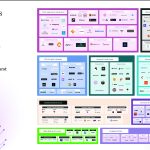
When Gurhan Kiziloz speaks about growth, he rarely mentions markets in abstract terms. His language is direct, often visceral, more action than analysis. And yet, it is precisely this instinctive style that placed Nexus International, his self-funded digital gaming company, in Brazil at the moment its regulatory environment began to transform.
In 2024, Nexus reported $400 million in revenue, a figure largely attributed to the explosive performance of its gaming platform Megaposta in Brazil. The number is significant not just because of its scale, impressive by any standard for a non-venture-backed company, but because of what it signals. For Kiziloz, Brazil is not just a growth market. It’s the axis on which his ambition to reach $1.45 billion in annual revenue by the end of 2025 now turns.
First In, First Licensed
While many international operators hesitated in Brazil, uncertain of how or when the legislative framework would solidify, Kiziloz did not wait for consensus. “We went in with the marketing,” he said. “The market responded.” Nexus was among the early wave of companies to acquire a formal gaming license after Brazil’s long-awaited regulation of fixed-odds betting and iGaming came into effect.
This license is more than a legal checkbox; it is the structural gatekeeper to long-term legitimacy in one of the most promising gaming markets globally. Brazil’s newly defined regulatory framework is rooted in compliance, responsible play, and taxation. In short, it is built for operators with the scale and agility to adapt, and punish those who don’t.
Kiziloz made the decision to engage with that process early. Without external investors or boardroom bottlenecks, Nexus was able to pivot fast. It acquired the license, scaled marketing, and built out a locally resonant brand, all without a funding round, VC pitch deck, or multinational merger.
This ability to move quickly is central to Kiziloz’s philosophy. His oft-repeated aversion to investor interference, “If I can build it myself, I will”, isn’t about posturing. It’s a reflection of his belief that speed, not just capital, is the true differentiator in high-growth sectors like iGaming. In a post-legalization Brazil, where compliance timelines are tight and brand loyalty is still forming, that speed matters.
But there is a trade-off. Brazil now accounts for a significant portion of Nexus’s operational focus. For a company with global ambitions, that kind of concentration introduces risk: regulatory shifts, currency fluctuations, or political pressures could impact performance overnight.
Kiziloz doesn’t see it that way. “I move forward,” he said in a recent interview. “There’s no Plan B.” For him, market dependence is not a weakness; it’s a commitment. Brazil is where the returns are today, and he intends to extract them while building operational depth elsewhere.
The ARPU Opportunity
Brazil’s consumer profile is uniquely suited to Kiziloz’s business model. A youthful, mobile-first population, combined with growing comfort in digital payments, has enabled platforms like Megaposta to scale rapidly. With Average Revenue Per User (ARPU) rising post-regulation and smartphone penetration near saturation, the structural foundations of the market align tightly with Nexus’s product offering.
Kiziloz has capitalized on this by deploying localized marketing strategies, TV spots, regional partnerships, and culturally embedded campaigns that align with Brazilian entertainment norms. He attributes much of Megaposta’s traction not to premeditated targeting, but to fast, iterative experimentation. “We didn’t have a map,” he said. “We launched the marketing and watched the data.”
The question now is whether Nexus’s Brazil-led model can scale in equally volatile or structurally complex markets. The company has yet to disclose expansion plans beyond Brazil, and Kiziloz remains intentionally vague on geography. What is clear is that his preferred model, centralized leadership, rapid execution, and no equity dilution, will face different challenges as Nexus moves beyond the regulatory momentum Brazil currently provides.
Yet Kiziloz has built his brand around contrarian instincts. When most founders optimize for hedge and optionality, they choose exposure. When others talk about diversified boards and measured growth, he speaks in absolutes. “If it fails, I start again,” he says.
A Model Under Watch
Whether Kiziloz’s Brazil-first, founder-funded model becomes a replicable blueprint or a singular outlier remains to be seen. For now, the $400 million revenue mark is proof that his risk posture can deliver scale. But as Nexus targets $1.45 billion in 2025, the company will be tested not only by market forces but by the internal resilience of a model built for speed over structure.
For Gurhan Kiziloz, Brazil is both a bet and a blueprint. How far it takes him may depend less on the country’s regulatory environment, and more on his ability to scale instinct without compromise.












